Swamp Dogg Goes Country
I got a call almost two years ago from my friend Ryan Olson, a member of Marijuana Deathsquad, whose album “Tuff Guy Electronics” was one of the first releases from Pioneer Works Press. I remember him saying, “So, you in?...we got to do this.” He was referring to a project that I was really excited by and had been inching towards, hoping we could be involved. The idea was to invite Swamp Dogg (the alter ego of the musician, songwriter, and producer Jerry Williams Jr.) to Nashville to record a country record with the legendary musician John Prine, bringing these two icons into the studio together for the first time. The deep link I felt between them originates in a song written by John Prine in 1969 about a Vietnam Veteran who returns from the war addicted to morphine, “Sam Stone,” for me one of the greatest American songs that was ever written with the lyric that stings: “there is a hole in daddy’s arm where all the money goes.” Swamp Dogg covered and released “Sam Stone” in 1972 on his album "Cuffed, Collared and Tagged," which did very well. Most people assumed the song was his own. I replied to Ryan, naturally of course, "I'm in....what do we need to make this happen." A few months later we were all down in Nashville and spent a week in the Sound Emporium, the old recording studio of Cowboy Jack. It was truly humbling to be there with two of my musical heroes. To see them play together and to be around a bunch of friends––musicians Ryan Olson, Justin Vernon and Chris Bierden––was indescribable. We also had synthesizer player Moogstar there of course, as well as an incredible organ player from Nashville, Derek Lee, and another amazing guest-guitarist Jim Oblon. What came of it was “Sorry You Couldn't Make It,” Swamp Dogg’s first country album. We brought on Joyful Noise to co-release the album with Pioneer Works Press.
Ahead of Swamp Dogg's live performance on the Broadcast, I had a chance to catch up with the legendary musician about recording with John Prine, his house full of musicians, his vast, varied career, and his long-awaited entrance into making a country record.
What's up Swamp?
Oh man, a little this, a little that. I’m doing good.
You're doing good?
Yeah. Not great, good.
Looking stylish as usual. You all set with your coffee there?
Yeah, and I'm not really a coffee drinker, but I drink it full of French vanilla cream. Makes it taste like cocoa.
Oh you like that sweet stuff, huh. The stuff that tastes like sweet chemicals makes it go down easy.
I'll drink a couple of cups but I'm the only son of a bitch I know that coffee puts them to sleep. I can drink a cup of coffee and go right to sleep. It just soothes the shit out of me.
Ha. So how long have you been living and playing in this house in Los Angeles? with Moogstar?
Well he's crazy. [Laughter] So yeah, I think Moogstar and I have been together about six years. So yeah, you could say I'm living with Moogstar although I own the house. It's a six bedroom, five-and-a-half baths and there's a little under 5,000 square feet. So, we are using all the bedrooms. A couple people sleeping on the couches and the floor. And we have a lot of rappers dropping by, rappers that I didn't even know, you know, who have been to the top of the charts and so forth. It's just a lot of people. We've got Black Elvis who was with Madonna for three years as her dance coordinator and he also sung some background with her.
You've been there with Guitar Shorty for a real long time, right?
Yeah, yeah. Shorty and his woman broke up and he moved to Texas with this other lady and—well he stayed down there a couple years and he got tired of being down there. Wasn't no money down there. He was in some weird part of Texas, I forgot, that's right next to Mexico. But not Tijuana because I'm close to Tijuana.
Was it Laredo? I used to cross the border in Laredo, Texas all the time.
Yeah, I'd know it if I heard it. Okay, I'll take your word. Anyway [Laughs] he . . . he called me and told me, he said "Yeah man, I'm thinking about coming on back there." He said, "You mind?" He said, "Could you put me up for a couple weeks while I look for an apartment?" I said, "Fuck yeah, no problem." And I've never charged anybody rent. You can't pay me no rent because you can't have no claims on my house, you know? You cannot do that to me. I will not take your money. You can go out and buy some groceries and shit with it if you want to.
But when I'm doing something on the outside and I'm getting paid to do it I pay him just like I pay everybody else, you know? But he came in to look for a place for a few weeks and he's been here in my house about 22 years!
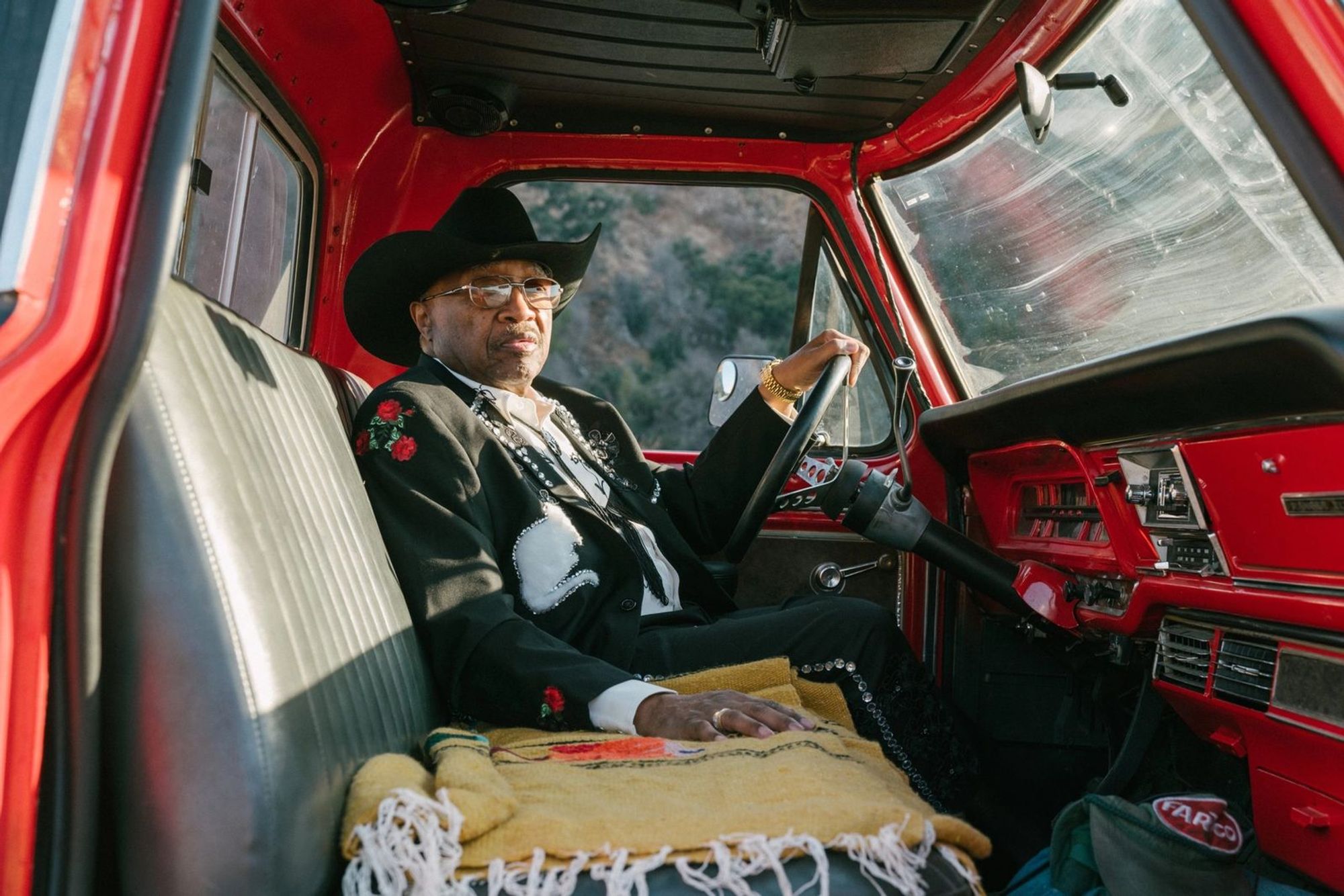
[Laughs] Wow and you have been playing music since.
Yup.
So it's like a house band and you're producing, writing the hooks, and then all these guest artists come in and kind of lay down their thing on top?
Yeah, well first . . . well we lay down the beat first. Shit has changed since the '50s, '60s, '70s. We used to always go in with a rhythm section and lay our stuff. Now just lay it with a drum machine and a bass you know? And usually keyboard bass.
As far as how you work with other collaborators. I remember you saying you had never worked with a producer before you let Ryan Olson work on Love, Loss and Auto-Tune? He's told me the story one time, I think. He got a call or—I forget—he somehow got a hold of the CD, right? You had the album already done as a demo?
Yeah.. . . there's another version of Love, Loss and Autotune. It's the version that Ryan heard and we got in touch. It's more like Bruno Mars style who happens to be my favorite entertainer right now, record maker anyway. So, I set up and studied Bruno Mars and I did an album partially like I thought Bruno Mars would do and the rest of it was what I wanted to do as Swamp Dogg. And I gave that to Ryan, and he said, "Can we do this over again?" I said yeah, I don't care. Fuck it. So that's what you hear. That's what you've heard. The original, it was good, but it rocked like a motherfucker…
I really want to hear that version. You never released it right ?
No, never released it. I was in the right mood when he asked me. I was ready. I was looking for new horizons. Now one of the things I did to help me get over with the album, I used autotune and I used it a hell of a lot especially like in songs like Stardust and shit. And that's why I named the album Love, Loss and Autotune. That was to keep all the critics off my back.
[Laughs]
Because what they would've done, if I hadn't put autotune on there they would've gone the opposite direction and said "Why is this old motherfucker trying to be Beyoncé or some shit? Why is he doing this? I mean autotune don't fit this old motherfucker and blah, blah, blah." But I gave it to them in a way that they couldn't take it any other way so now they're saying a couple—I think in Rolling Stone they said no one should be allowed to use autotune but Swamp Dogg. See? [Laughs] People funny, man. But anyway.
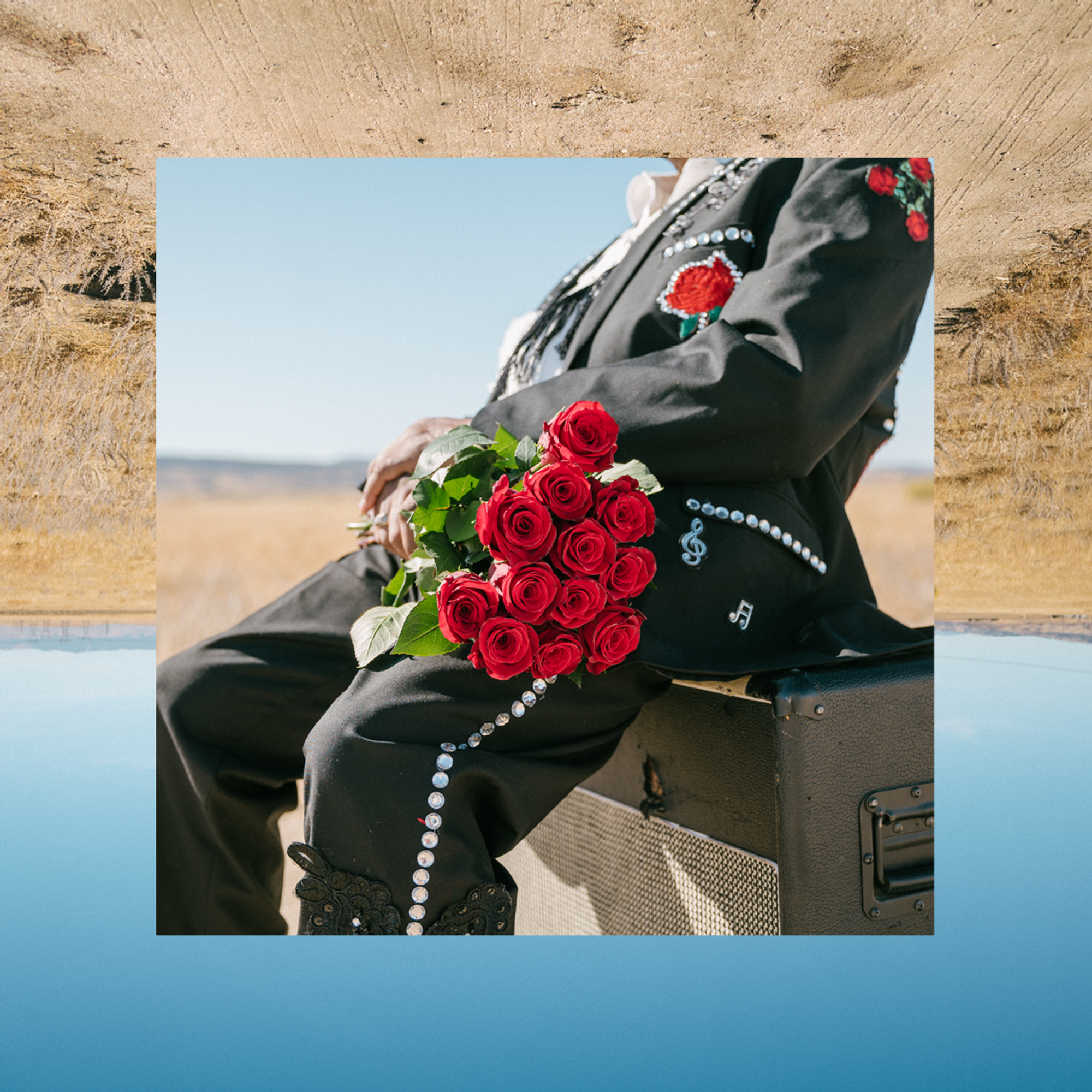
So it was the first time you really handed your music over to someone and let them do what they wanted?
I didn't get in his way like most artists. When you start producing them, they start telling you what they hear and what they think and what they want to do when working together. They don't wait until you develop the idea before they start complaining about the idea or trying to change the idea. With him I didn't like everything he started out with, but I loved everything he ended up with because I didn't fuck with it. I said "Man, you sure you want to do that?" He said, "Yep and do this and do that." "Okay, fine."
Sorry you Couldn’t Make It is quite the departure from Love Loss and Auto-tune. As it is also completely new from anything you have done as it’s a country record.
We never mentioned country on this. We just did it that way and I think—and another reason, and I'm crossing over myself, but another reason I hadn't done a country album is because for years there was only one black country star, superstar, or just say artist which was Charley Pride. If it hadn't been for Buck Owens and a couple of them motherfuckers Charley Pride would still be unknown but they were carrying him out with them. They had their arms around him and that's how he made it.
I remember you coming in the studio, in Nashville, and you had this huge stack of paper with you of notes and lyrics from years and years ago and Ryan brought them back to our place to look through and choose different options to record. I remember being entranced by those and looking at them with him for hours trying to choose and there were just so many good songs. What are some of the stories around a few of the songs? Like Billy and Family Pain, I just wanted to hear a bit of a story on where they came from.
Yeah, well you know, it's . . . if you're a writer it's kind of easy to write by just looking around first at your own family and then start looking at other people outside of the family and how they're conducting their lives and so forth. It was like in, Family Pain, I'm saying, everybody's addicted to something, including the mother but you've got these mothers out here who they be trying to tell their daughters and sons, this is wrong, don't do it. But it ends up with "I don't want you to end up like me," you know?
Because they throwing down too, you know? They are having sex for money and all of that. So, I wrote it from the perspective of the father—and I've seen this so many times—everybody's doing it except the father. And there's an incident in my life like that where one of my daughters, she was on it. She had a boyfriend, he was like hey, he deserved better than that particular daughter of mine. But he started doing whatever the hell she was doing, cocaine or whatever, and he got hooked but he was doing it to be with her. So that's how in Family Pain, you know, I say something about how the father can't understand how ten dollars . . .
Ten dollars.
And a . . .
And a tube of glass.
And a tube of glass.
Can tear down . . .
Yeah, a damn good man or something like that. Yeah. You did listen to it huh?
Oh, I've listened to it a couple hundred times.
[Laughs] Yeah. It's supposed to be a country album and that's what, if you notice, I'm just using my voice, just my second voice. I'm not doing a lot of funny little Swamp Dogg tricks and shit and the songs, Ryan, he kept them simple as far as the music was concerned because country don't . . . country don't allow you to do a whole lot of hellacious arrangements and so forth, you know?
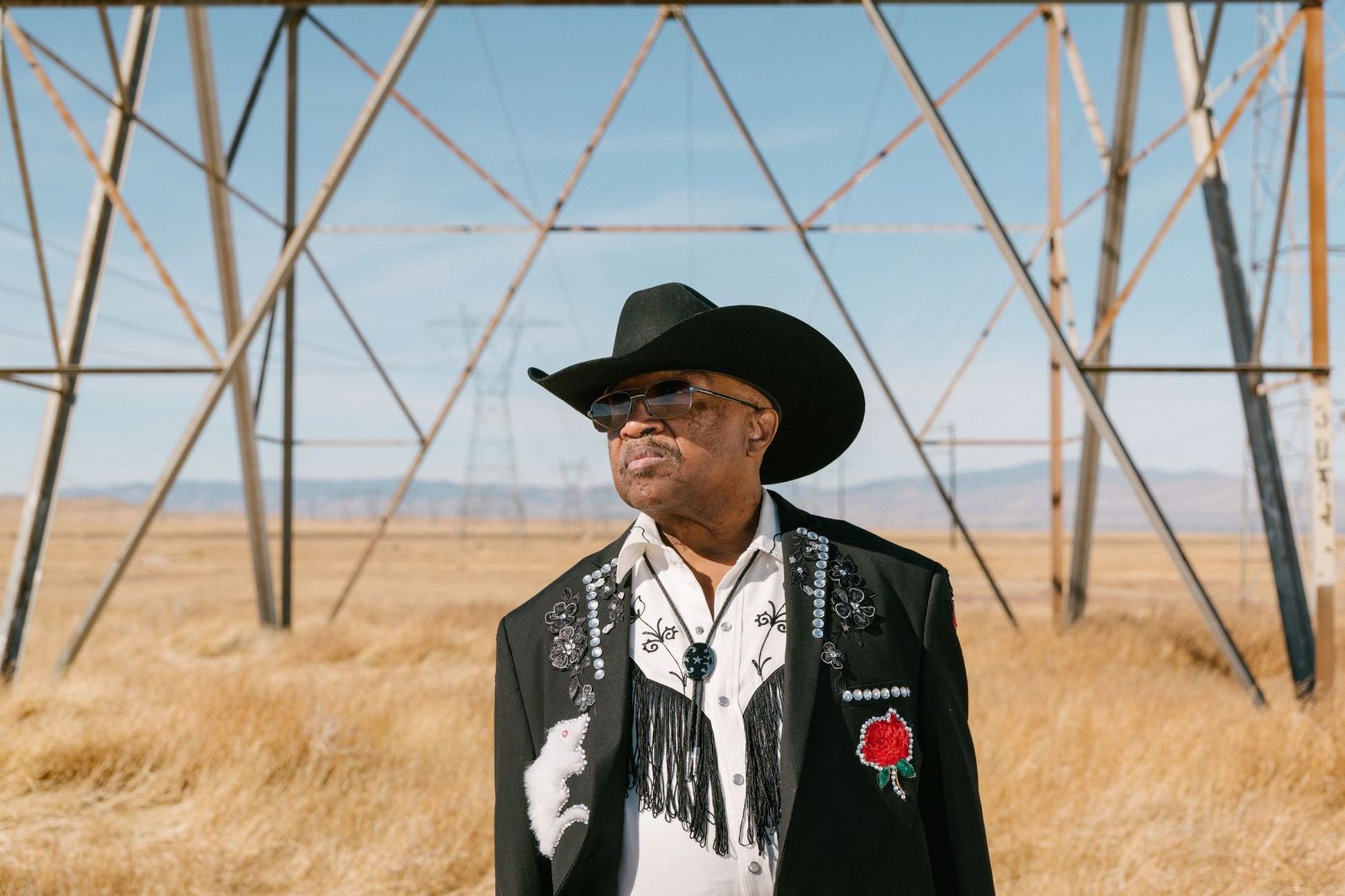
Yeah.
Most of the creativity comes from the guitar solo then you're back to a good old song. And I love country. I think it's a motherfucker. I always recorded what I thought—now if you know... what was in my mind and what I felt all.. I would get my ideas from other artists and want-to-be artists. Even my titles, most of all of my titles of the songs that I've written and still write come from people talking and they'll say something that'll hit me and I'll write it down. I've got a little file that I put all potential song developments in it and when I get ready to do a session which is all the damn time I look in there and see if it triggers anything. Sometimes it does, sometimes it doesn’t.
When did you first—I love the story of when you first came across John Prine. It was through Sam Stone, the song. Was that the first thing you heard of John's?
Yeah, I was working for Atlantic and A&R and they had signed John Prine. I didn't know John. So I played this record of John Prine's that they had just released and I wasn't thrilled with his vocals but the song was a killer and all through my career, my Swamp Dogg career, people think and people thought that I wrote it because I had— it hit the bottom of the charts and all that. When they would ask me I'd tell them who wrote it but if nobody asked me I didn't say nothing about it. You know, I'd just go and take the credit.
Well you sing it like you own it, you know?
Huh?
You sing it like you wrote it yourself. You've got that—you've got the feeling.
Yeah. It's . . . because that song is hard to fuck up.
Hmm. It's one of the best songs.
What he's saying, yeah. He's a great songwriter. He was a great songwriter and I'm going to miss him.
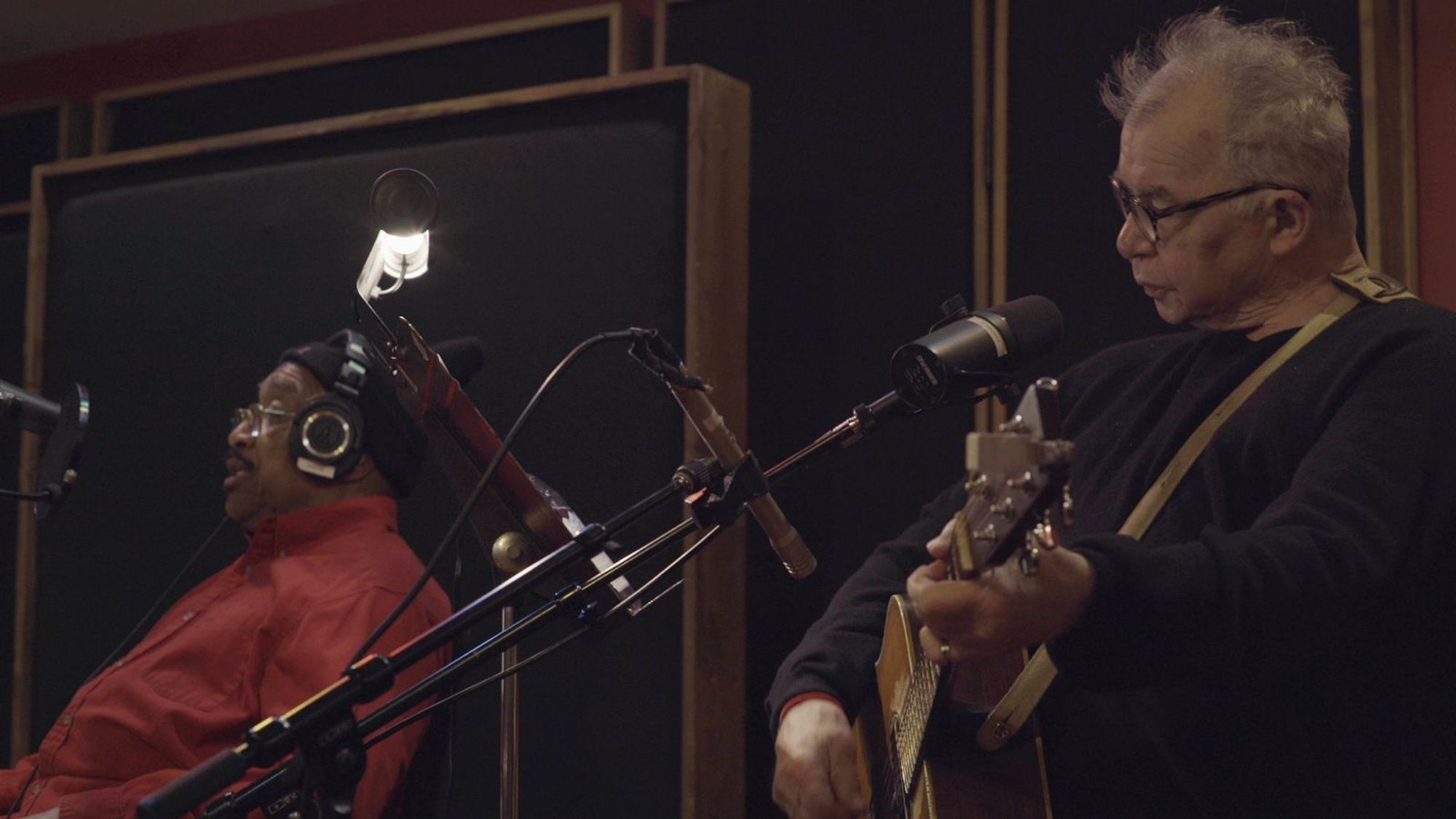
Yeah man.
We were planning on going to his house in Ireland and we were going to stay there about a week or so and just write some new shit, you know? His intertwined with mine, you know, the ideas. And it was going to be good man. Now I'm glad I did get a chance to go in the studio with him.
It was a really special thing that you got to do this with him before he passed.
And we had—we got a couple of things in the can that we can't release at this time. One of them is a song written by Kris Kristofferson.
That one was so good. Also you recorded Sam Stone with him which was one of the great moments in my life to get to see that as that song is the whole reason this happened.
Yeah.
That's the amazing thing Swamp is that I actually found out about your music through that song I heard in like 2005, when I was working as a glass blower and my boss was obsessed with John Prine and he introduced me. I was just playing John Prine like 12 hours a day and blowing glass, making glass dildos funny enough. I told John Prine that story in Nashville and he laughed and said to me “Now that sounds like a perfect story to write a country song about”
[Laughs] Right.
And then I heard your song, your cover, because I was looking at covers of John Prine and it just blew me away and I got into all your music for a while after that. But then I hadn't listened to you for a number of years until Ryan and Justin got me back into you.
No shit?
And I met you for the first time at the John Prine tribute show Justin Vernon put together at O'Clair which was beautiful.
Yeah.
When we were in Nashville at Sound Emporium, I kept on bugging Ryan, saying “that you guys had to record Sam Stone. You know, I was obsessed with it. It seemed like it was a historic moment that needed to of course happen, to finally have you guys together to do that song. And I kept ragging on Ryan to do it, but they had just recorded it or something and his son also didn't really want to do it.
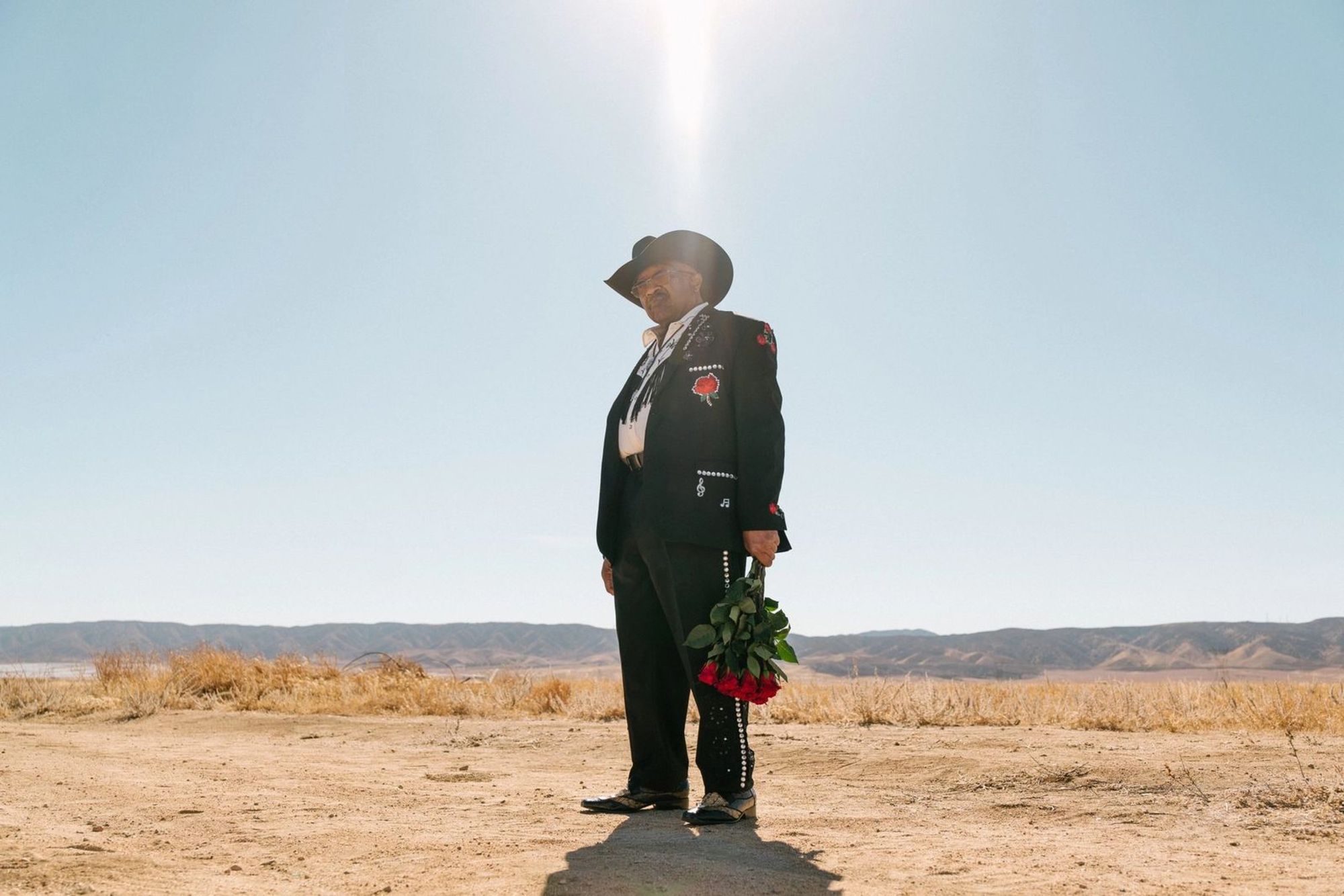
Right, and I didn't want to push either, you know?
Yeah I know I was trying to play it cool but ended up trying a last time and asked his son one last time, I was like "Man, what about Sam Stone?" and he was like "You know he just did another version of it." I was like “okay” like I said, I backed off. But then when we came back into the studio, right when I walked in and I just heard John say to you something like "So should we do Sam?" And I thought you said something like "I don't see why not." And you did it and there was like . . . there's an eight minute cut of it Ryan got, and you guys have this amazing monologue within it. It’s really a special song. We didn’t get to release it but it's a dream one day maybe we'll be able to.
Prine and I had talked, and we had plans. I was going to open up for him in a few places, but it didn't, you know, because he died it all came down.
I thought you and John singing Memories was so beautiful. I was just thinking about his passing this last month so much and listening to that song it is so touching. But where's that song from?
I wrote it . . . it's actually inspired by my wife's death, but I didn't want it to be no more morbid than it is, you know. You always can open that memory door. I think somebody just opened it didn't they? [Laughs] Visualize and kind of dream about that type of thing, the person and you together, and what it all could mean.
Wow…One story I wanted you to tell before we end is the title of the album “Sorry You Couldn't Make It.”
Because in 1971 Gary US Bonds and I were country writers of the year and we also was up for a country Grammy, but they didn't know we were black for a long time and when we got there for the Grammys they said . . . one of the first things, they said "Damn, happy to meet you." They really wanted to say "We didn't know y'all was niggers." But it was like "We're happy to see you and best of luck. Sorry you couldn't make the writers' dinner." I said, "We didn't make the writers' dinner because you motherfuckers didn't invite us to the writers' dinner," you know? They sent us a little postcard type thing saying "Sorry you couldn't make it," you know? And I explained it on the back of that cover. I thought it'd work good since it fit in with country and it was about country people.
So you making a country record seems to be something long overdue.
I love country. I think it's a motherfucker. Look here, am I hurting this thing by cursing? I'm sorry, you know.
Editor’s note: The influential country folk singer-songwriter John Prine died from the coronavirus in April.
Sorry You Couldn’t Make It was made in collaboration with Joyful Noise Recordings and Pioneer Works Press.
Subscribe to Broadcast